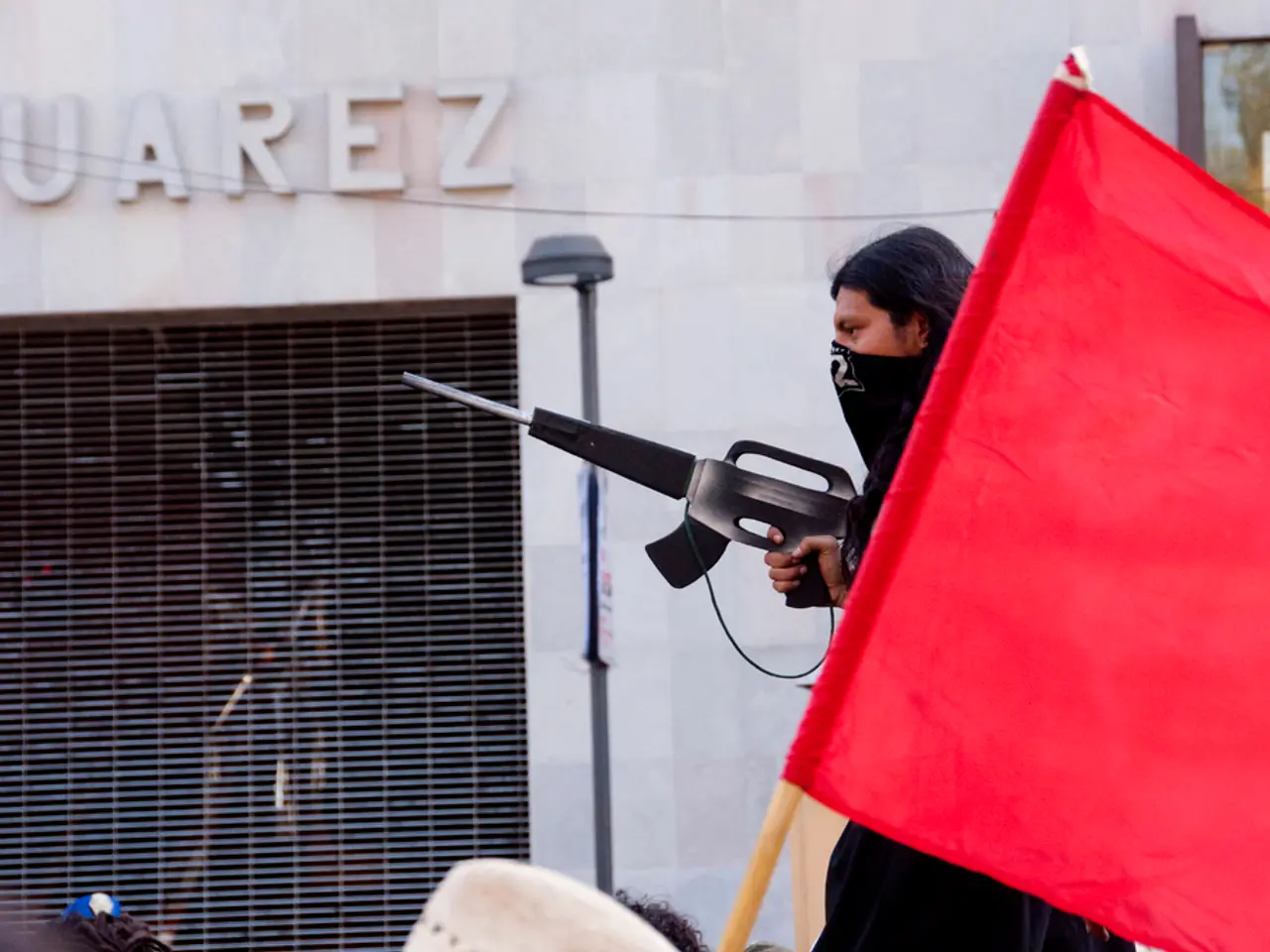International Summit Ends with Six Proposed Actions to Prevent Genocide in Gaza, According to the Hague Group
In the realm of international politics, a significant development has taken place regarding the supply of weapons, ammunition, military fuel, military equipment, and dual-use items to Israel. This news article explores the fragmented efforts and ongoing debates surrounding this issue.
While there are currently no broadly enforced international sanctions against Israel by major global powers or blocs, such as the United States or most EU countries, notable developments have emerged.
The European Union is in discussions about potential sanctions against Israel due to human rights concerns linked to the Gaza conflict and broader Palestinian issues. Proposed measures include suspending cooperation deals, curbing trade ties, imposing an arms embargo, sanctioning Israeli ministers, and halting visa privileges. However, as of mid-2025, EU member states remain divided, and no binding arms embargo or comprehensive sanctions have been agreed upon.
A group of around 30 countries, known as the Hague Group, has taken a more decisive action. This coalition, which includes Colombia, South Africa, China, Brazil, Spain, Mexico, Turkey, and Qatar, among others, coordinated an Emergency Conference. Twelve of these countries—Bolivia, Colombia, Cuba, Indonesia, Iraq, Libya, Malaysia, Namibia, Nicaragua, Oman, Saint Vincent and the Grenadines, and South Africa—have pledged to prevent the provision or transfer of arms, munitions, military fuel, military equipment, and dual-use items to Israel where appropriate. They have also committed to preventing related vessels from docking or servicing in their ports if these vessels are suspected of carrying such cargo to Israel. This move is positioned as a legal and humanitarian effort to prevent complicity in alleged war crimes and atrocities.
On the other hand, the United States reportedly opposes calls for sanctions or arms embargoes against Israel at the UN and elsewhere. Prominent U.S. officials and institutions continue to support Israel and have resisted diplomatic moves to impose such restrictions.
In summary, while there is no universal or widespread international arms embargo or sanctions regime against Israel, a coalition of several countries has recently committed to restricting arms and military-related supplies to Israel based on humanitarian and legal concerns, and the EU is actively debating stronger measures. However, major global players like the U.S. continue to oppose such sanctions.
The conference announcing these measures was held in the Colombian capital. This article aims to provide a clear and concise overview of the current state of international sanctions against Israel, using factual information to inform readers about this complex issue.
References: [1] European Union's Proposed Sanctions Against Israel: A Divided Union (2025). The Guardian. [2] Hague Group Imposes Partial Arms Embargo on Israel (2025). Reuters. [3] EU Member States Remain Divided on Israel Sanctions (2025). BBC News. [4] U.S. Opposes UN Calls for Israel Arms Embargo (2025). The New York Times.
Good bed (agreeing) and good table (discussing) have been set for the EU, as they deliberate potential sanctions against Israel due to human rights concerns in the Gaza conflict and broader Palestinian issues. The proposed measures, including an arms embargo and sanctioning Israeli ministers, have been met with division among EU member states, reflecting the complex and politically charged nature of international policy-and-legislation and war-and-conflicts. On the other hand, the Hague Group, a coalition of around 30 countries, has taken a more definitive stance, pledging to prevent the provision or transfer of arms, munitions, and military-related supplies to Israel, positioning themselves as legal and humanitarian advocates.








